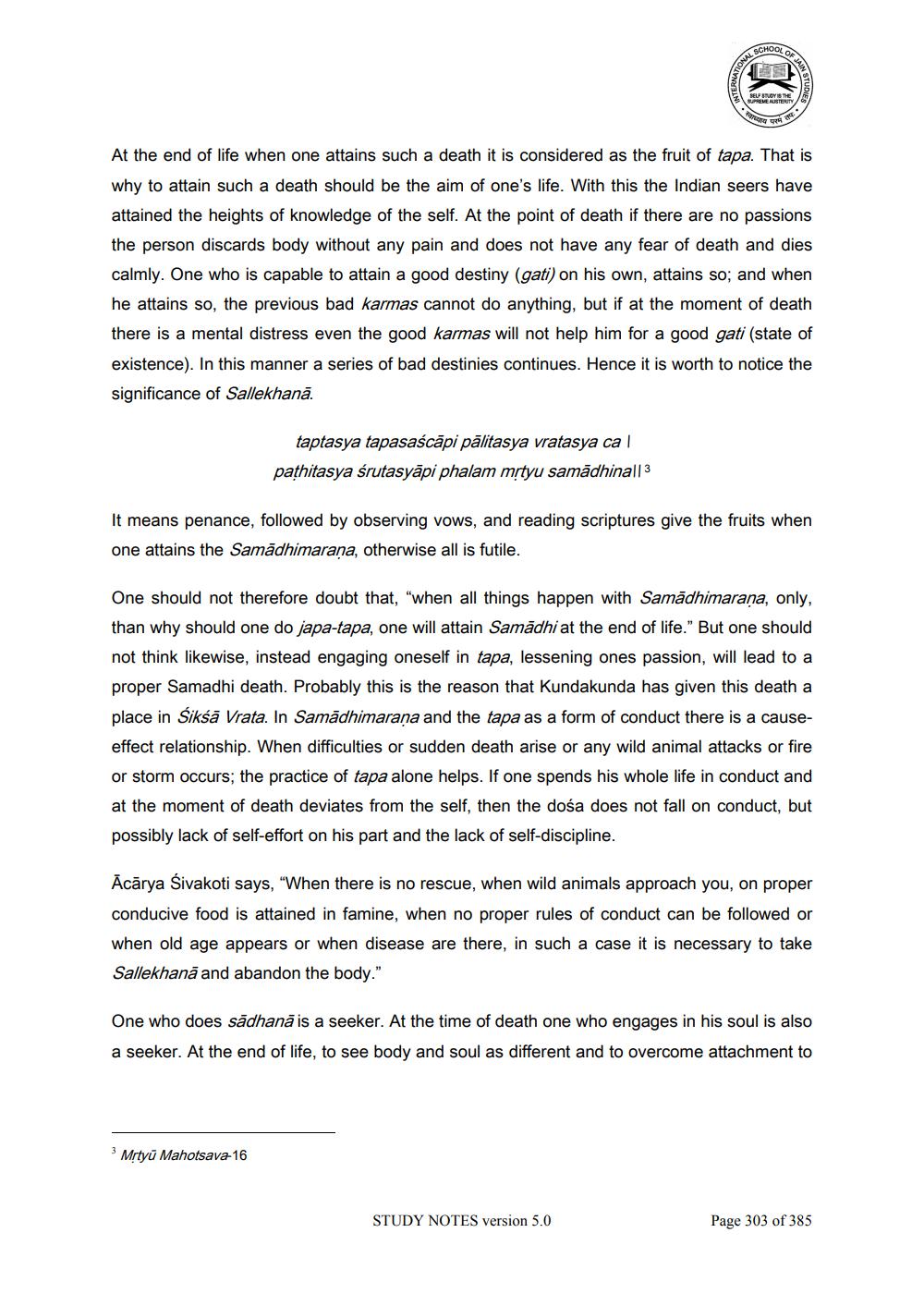________________
At the end of life when one attains such a death it is considered as the fruit of tapa. That is why to attain such a death should be the aim of one's life. With this the Indian seers have attained the heights of knowledge of the self. At the point of death if there are no passions the person discards body without any pain and does not have any fear of death and dies calmly. One who is capable to attain a good destiny (gati) on his own, attains so; and when he attains so, the previous bad karmas cannot do anything, but if at the moment of death there is a mental distress even the good karmas will not help him for a good gati (state of existence). In this manner a series of bad destinies continues. Hence it is worth to notice the significance of Sallekhanā.
taptasya tapasaścāpi pālitasya vratasya ca pathitasya śrutasyāpi phalam mrtyu samadhinal 3
It means penance, followed by observing vows, and reading scriptures give the fruits when one attains the Samadhimarana, otherwise all is futile.
One should not therefore doubt that, "when all things happen with Samadhimarana, only, than why should one do japa-tapa, one will attain Samādhi at the end of life." But one should not think likewise, instead engaging oneself in tapa, lessening ones passion, will lead to a proper Samadhi death. Probably this is the reason that Kundakunda has given this death a place in Sikśā Vrata. In Samādhimarana and the tapa as a form of conduct there is a causeeffect relationship. When difficulties or sudden death arise or any wild animal attacks or fire or storm occurs; the practice of tapa alone helps. If one spends his whole life in conduct and at the moment of death deviates from the self, then the dośa does not fall on conduct, but possibly lack of self-effort on his part and the lack of self-discipline.
Ācārya Śivakoti says, “When there is no rescue, when wild animals approach you, on proper conducive food is attained in famine, when no proper rules of conduct can be followed or when old age appears or when disease are there, in such a case it is necessary to take Sallekhana and abandon the body."
One who does sādhanā is a seeker. At the time of death one who engages in his soul is also a seeker. At the end of life, to see body and soul as different and to overcome attachment to
3 Mrtyū Mahotsava 16
STUDY NOTES version 5.0
Page 303 of 385




